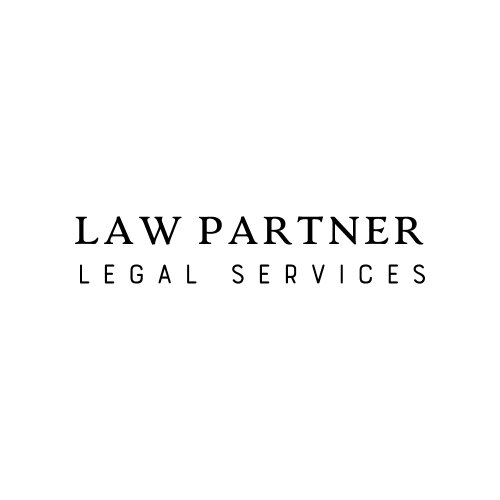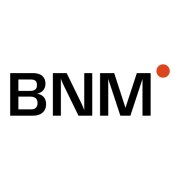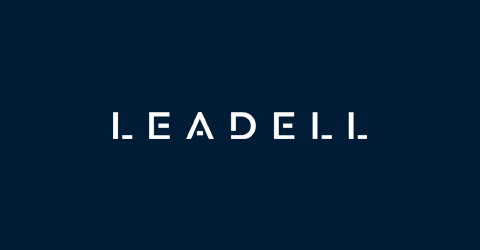Best Acquisition / Leveraged Finance Lawyers in Republic of Lithuania
Share your needs with us, get contacted by law firms.
Free. Takes 2 min.
Or refine your search by selecting a city:
List of the best lawyers in Republic of Lithuania
About Acquisition / Leveraged Finance Law in Republic of Lithuania
Acquisition and leveraged finance law in the Republic of Lithuania is a specialized area that governs the structuring, negotiation, and implementation of transactions where companies are acquired using borrowed funds. This often involves banks, private equity investors, and other financial institutions providing loans to facilitate the purchase of a business or its assets. In Lithuania, the legal framework regulates how such financing can be secured, the types of security interests that can be created over assets, and the rights and obligations of each party involved in the transaction. Given Lithuania's membership in the European Union, its laws are influenced by both national and EU regulations, making the legal environment complex and evolving.
Why You May Need a Lawyer
There are several scenarios where professional legal advice is invaluable in acquisition and leveraged finance in Lithuania. Common situations include negotiating loan agreements for mergers and acquisitions, ensuring compliance with Lithuanian and EU laws, structuring security packages, conducting due diligence investigations, and managing risks associated with complex financing structures. Whether you are a local entrepreneur, international investor, lender, or borrower, a lawyer experienced in this field can help you navigate regulatory requirements, draft and review contracts, mitigate legal risks, and resolve disputes that may arise during or after the transaction.
Local Laws Overview
Lithuanian law governing acquisition and leveraged finance is shaped by the Civil Code of the Republic of Lithuania, the Law on Companies, the Law on Financial Institutions, and relevant EU directives and regulations. Key legal aspects include the types of loans available, rules for granting security over assets (such as pledges and mortgages), enforceability of security interests, rules regarding corporate approval and financial assistance, and insolvency regulations impacting creditors and borrowers. Regulatory oversight is provided by the Bank of Lithuania and various supervisory authorities, ensuring transparency, fair competition, and financial stability within the market. Cross-border financing must also comply with EU-wide rules on anti-money laundering, capital requirements, and reporting obligations.
Frequently Asked Questions
What is acquisition finance?
Acquisition finance refers to the funding made available for the purpose of acquiring a business or its assets, typically through loans or credit facilities secured by the target company or its assets.
What is leveraged finance?
Leveraged finance involves providing loans or credit to companies with higher debt levels, often to fund acquisitions, with the expectation that the acquired company’s cash flows will be used to repay the debt.
Can foreign investors access acquisition finance in Lithuania?
Yes, foreign investors can access acquisition finance in Lithuania, subject to compliance with local and EU regulations pertaining to funding, security interests, and regulatory approvals.
Are there restrictions on granting security over Lithuanian assets?
Lithuanian law allows for a range of security instruments, including pledges and mortgages, but proper registration and compliance with statutory requirements are essential for enforceability.
How does Lithuanian law treat financial assistance?
Generally, there are certain restrictions on a company providing financial assistance (such as loans or guarantees) for the acquisition of its own shares, in line with EU directives. Legal advice is crucial to ensure any assistance provided complies with the law.
What are the main steps in a leveraged finance transaction?
Key steps include structuring the deal, negotiating and drafting finance documents, completing due diligence, arranging security over assets, and fulfilling regulatory filing and approval processes.
What is the role of the Bank of Lithuania?
The Bank of Lithuania supervises financial institutions, implements monetary policy, and ensures compliance with financial market regulations, including oversight of acquisition and leveraged finance activities by banks and lenders.
What happens if the borrower defaults?
If a borrower defaults, the lender may enforce security interests in accordance with Lithuanian law. This could involve selling pledged assets or initiating insolvency proceedings, depending on the agreed terms and compliance with legal procedures.
Do I need to involve local counsel for cross-border deals?
Yes, involving local legal counsel is essential in cross-border deals to ensure that all aspects of Lithuanian law and EU regulations are adhered to, and to facilitate necessary filings and registrations.
What is due diligence and why is it important?
Due diligence is the process of thoroughly investigating the target company’s legal, financial, and commercial status before a transaction. It helps identify risks, liabilities, and compliance issues, allowing informed decision-making and risk mitigation.
Additional Resources
If you are seeking further information or assistance, consider contacting the following organizations:
- Bank of Lithuania - the national supervisory authority for financial markets
- Ministry of Justice of the Republic of Lithuania - provides information on legal procedures and company law
- Lithuanian Bar Association - a directory of qualified local lawyers and legal experts
- State Enterprise Centre of Registers - for registering pledges, mortgages, and other security interests
- Invest Lithuania - offers guidance to foreign investors on doing business in Lithuania
Next Steps
If you believe you need legal assistance in acquisition or leveraged finance in Lithuania, start by gathering all relevant documents related to your proposed transaction. Outline your objectives, timelines, and any potential concerns. Reach out to a lawyer or law firm with experience in corporate and finance law, ensuring they have a strong understanding of both Lithuanian and EU regulations. An initial consultation can help clarify your options, required procedures, and potential risks. Continuing legal support will ensure that your transaction is properly structured, compliant, and as risk-free as possible. Taking early and informed legal advice is the best way to protect your interests in this complex field.
Lawzana helps you find the best lawyers and law firms in Republic of Lithuania through a curated and pre-screened list of qualified legal professionals. Our platform offers rankings and detailed profiles of attorneys and law firms, allowing you to compare based on practice areas, including Acquisition / Leveraged Finance, experience, and client feedback.
Each profile includes a description of the firm's areas of practice, client reviews, team members and partners, year of establishment, spoken languages, office locations, contact information, social media presence, and any published articles or resources. Most firms on our platform speak English and are experienced in both local and international legal matters.
Get a quote from top-rated law firms in Republic of Lithuania — quickly, securely, and without unnecessary hassle.
Disclaimer:
The information provided on this page is for general informational purposes only and does not constitute legal advice. While we strive to ensure the accuracy and relevance of the content, legal information may change over time, and interpretations of the law can vary. You should always consult with a qualified legal professional for advice specific to your situation.
We disclaim all liability for actions taken or not taken based on the content of this page. If you believe any information is incorrect or outdated, please contact us, and we will review and update it where appropriate.
Browse acquisition / leveraged finance law firms by city in Republic of Lithuania
Refine your search by selecting a city.















